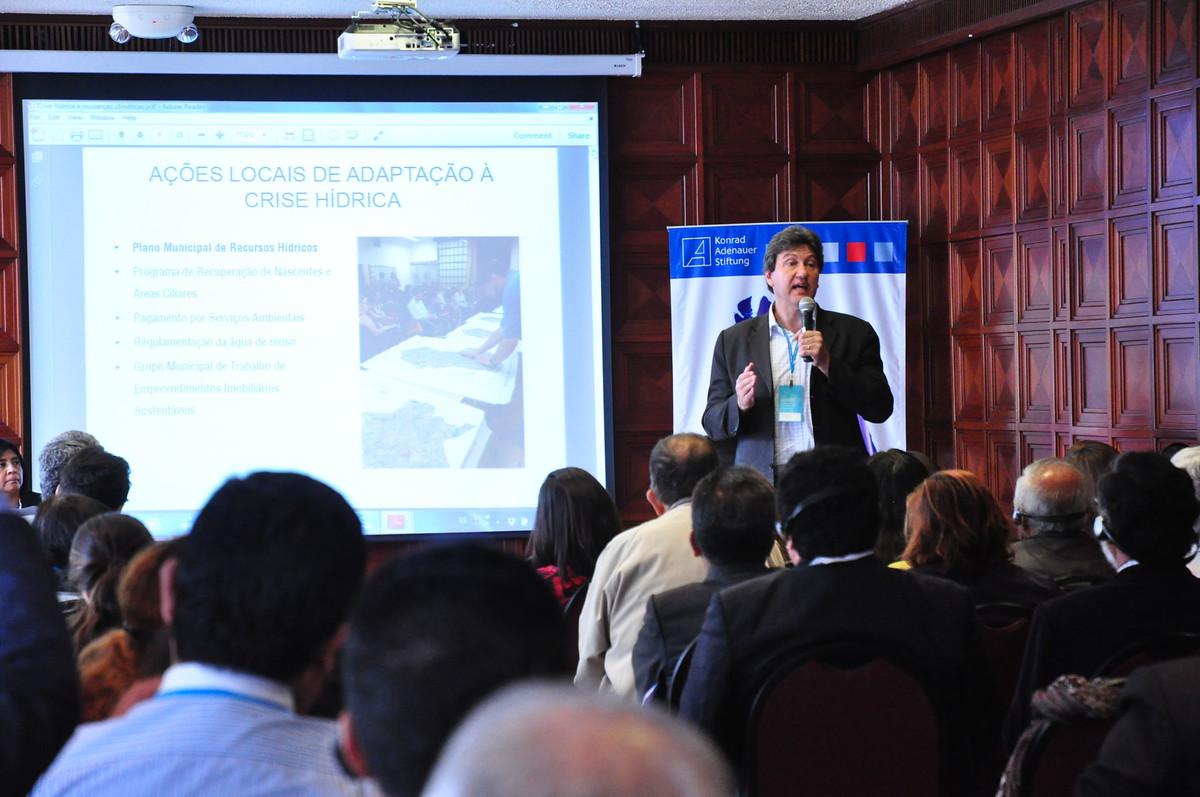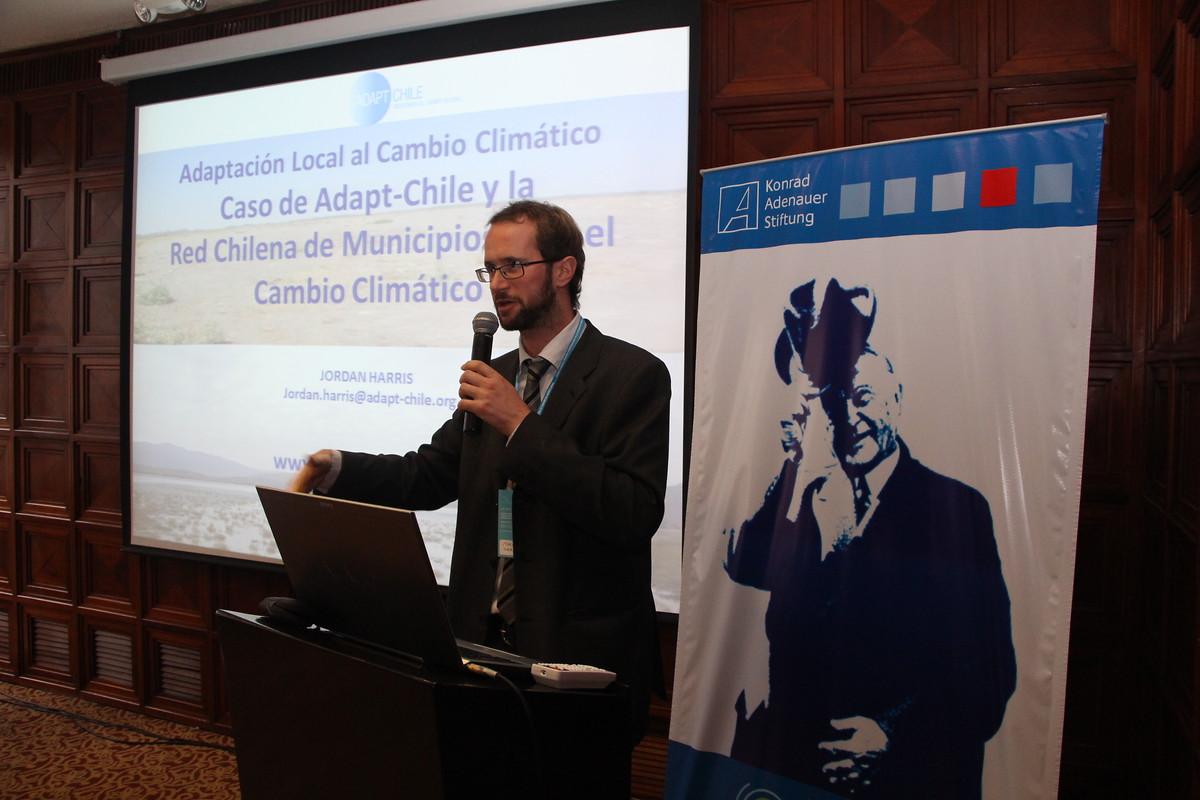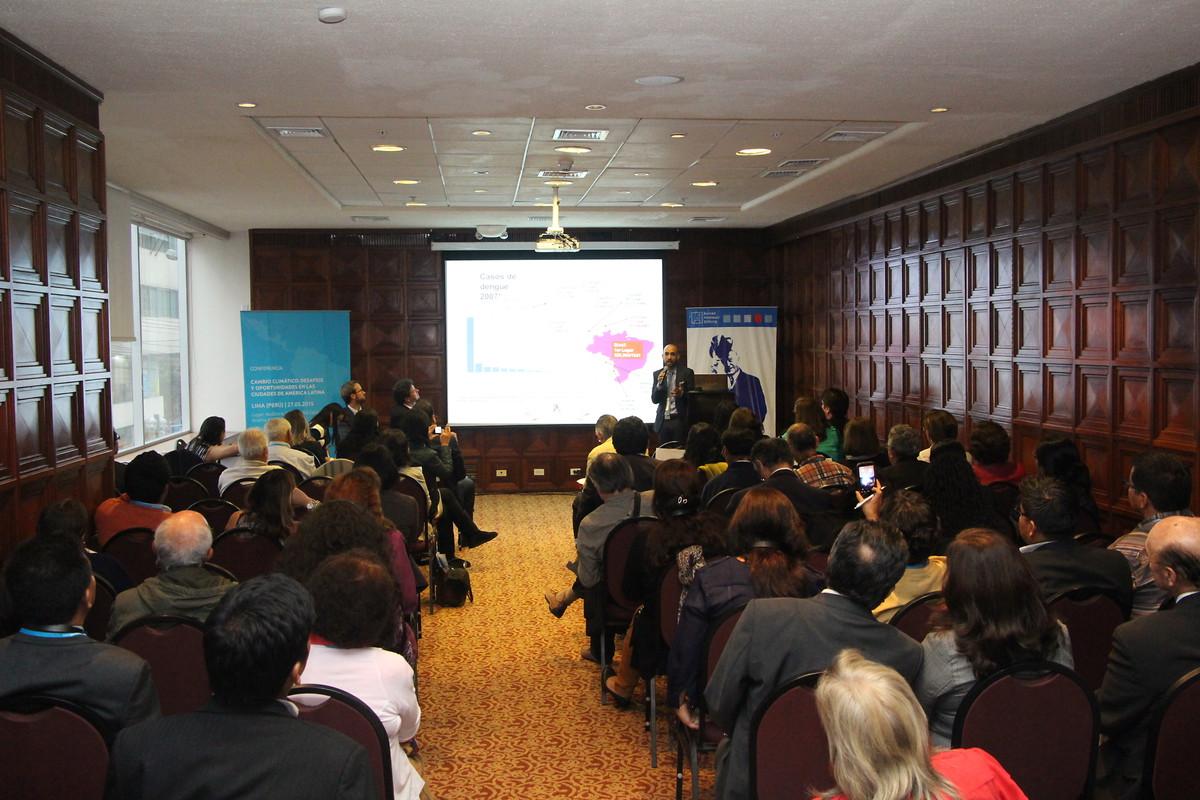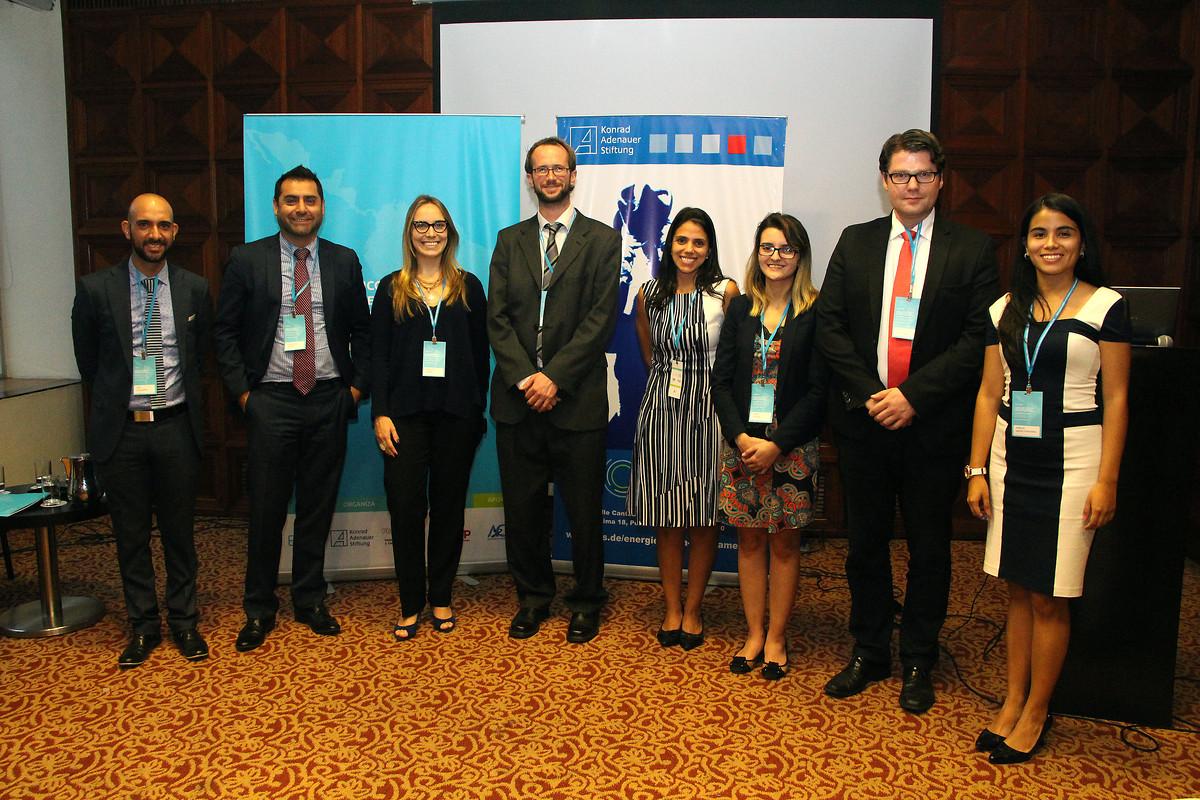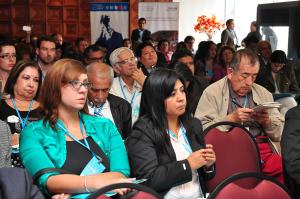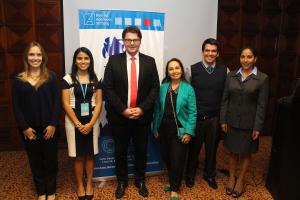Event reports
Israel Jorge Huarca Mejía, Manager of Environmental Evaluation and Quality of the Metropolitan Municipality of Lima; Dr. Christian Hübner, Head of the Regional Programme EKLA-KAS; Álvaro Ugarte, Executive Director of INICAM and Juliana Lopes, Director of CDP; welcomed the participants, highlighted the importance of discussing climate policy at local levels and also talked about the challenges faced by the mayors of Latin America. This is the second conference of several more related to climate change and cities, organized by EKLA-KAS (Regional Programme Energy Security and Climate Change in Latin America); the first conference took place on February this year in Mexico. Furthermore, thanks to the Ministry of Environment of Peru (MINAM) this meeting was carried out within the framework of the Climate Commitment Week. Additionally, Andreia Banhe, Project Manager of the CDP Cities, talked about this platform where better environmental practices are shared in cities.
On the first panel the participants were Álvaro Ugarte, Executive Director of INICAM; Alberto Martín Barandiarán, Adviser of the Ministry of Environment of Peru; Sandra Torres Chávez, Manager of the Environmental Division of the Provincial Municipality of Arequipa; Lenkiza Angulo, Director of the Programme for Adaptation to Climate Change (PACC) in Peru; and Eduardo Carhuaricra Meza, General Manager of the Peruvian Association of Municipalities. They discussed the strategies of adaptation at local and regional level in Peru, highlighting the importance that the country had been host of the COP 20 in 2014 to bring climate related issues further into debate and demand with urgency the implementation of a national environmental policy. They also emphasized the importance of citizen participation in the process of urban planning, land and risks management; as well as the management of the consequences of climate change in the rural area, consequences that also affect the cities that receive food and water from the this sector.
The second panel was formed by Juliana Lopes, Director of CDP; Rogerio Menezes, Secretary of Environment of the city of Campinas – Brasil; Adolfo Toledo Parreño, Coordinator of the Division of Water Resources of the National Water Authority (ANA); Sofía Castro, Regional Coordinator of the programmes of Global Water Partnership (GWP); and José Arakaki Nakamine, Mayor of the city of Lurín. The discussion focused on the efficient management of water for the adaptation to climate change, highlighting the challenge faced by a city like Sao Paulo, where there is drought and an increasing demand for water. In response to this, Sao Paulo works very closely in cooperative way with 20 other cities of the area. The Peruvian experience is no different from that in Brasil, as it is estimated a hydric deficit on a national level by 2021, therefore it is necessary to implement a national water resources plan. To be successful in this matter, it is necessary to coordinate between different areas and to take advantage of public-private investments opportunities in order to guarantee the water supply in sufficient quality and quantity.
The third panel, based on local mitigation strategies, began with the discussion on the promotion of urban networks and the promotion of public-private partnerships to increase the quantity and improve the quality of investments in mitigation projects. Also noteworthy is the importance of ancient knowledge and practices for a proper planning based on three perspectives: basin, territorial and ecosystems. In addition, these mitigation strategies create business opportunities, for example: an efficient solid waste management that gives formal jobs to recyclers and the production of compost for commercialization. All this subjects were discussed by Arturo Caballero, General Manager of A2G Climate Partners; Karina Marzano, Project Coordinator of the Regional Programme EKLA-KAS; Edilberto Orosco, Environmental Manager of the Provincial Municipality of Cusco; and Isidro Vidaurre, President of the Environmental Committee of the Provincial Municipality of Lambayeque.
On the last panel, we heard about the experiences of Chile, Brazil and Mexico. The forum emphasized the importance to work with the community in order to involve neighbors and city workers into the adequate planning linked to climate adaptation, who will be key for the elaboration of manuals regarding best practices about water efficiency and security, GHG reduction, risk, health, biodiversity and infrastructure management. To make this possible, climate change and environment should not be sectoral subjects, but central and strategic themes to achieve the sustainability of cities. In addition, this would require further investment in technical and technological capacity. Finally, before the implementation of adaptive or mitigation measures, it is important to make an emissions inventory to know the overall condition of the city and determine the actions that need to be taken. María Fernanda Pineda, Project Coordinator of the Regional Programme EKLA-KAS; Jordan Harris, Director of Climate Science and Political Interaction at AdaptChile in Chile; Rogerio Menezes, Secretary of Environment of the city of Campinas – Brasil; and Alejandro Leal, Director of Ecology and Cleaning of public areas of San Luis Potosí - Mexico; participated in the conversation.



